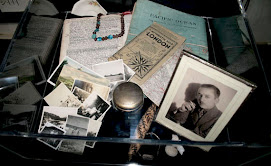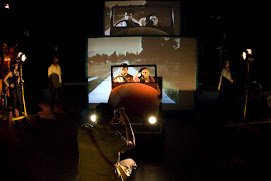Screens and projections have become commonplace in theatre. Sometimes the footage is well shot and/or designed, sometimes not. Sometimes they’re imaginatively and deftly used, sometimes not. Sometimes they add, sometimes they diminish.
This recent article in The New York Times discusses the rise and rise of screens and projections in live theatre.
Combining recorded images and on-stage action is a complex and intricate business. As is fusing deferred and live performance. I’ve seen productions with lavish and costly projections that have been pretty ho-hum, and incredibly simple set-ups that worked brilliantly. Success is obviously down to more than technology and resources (although they help).
You’re probably sensing a ‘but’ here …
Screens, both individual and public, are a feature of contemporary life. As theatre-makers of course we want to reference and make use of them. But this ubiquity also prompts reservations. When many of us spend so much of our time gazing at screens on computers, iPhones, tablets, TVs, etc. do we—do I—want to go to the theatre for more of the same?
I have mixed feelings about this, and certainly nothing per se against the use of screens on stage … but there is something unique and compelling about the live, unmediated exchange. I love the directness of stand-up, of spoken word and poetry. Of readings. Of the guided tours you bump into. Of the everyday, happenstance performances you come across in supermarkets and department stores (such as cooking demonstrations) and in malls (spruikers and the like). Although perhaps my preference for these bare-bones, solo forms reflects nothing so much as my current disenchantment with theatre, much of which I’m finding limited, over-reliant on a handful of easy, predictable tropes, even—dare I say it?—intellectually banal.
But let’s end on a more up-beat note. One of the most stunning theatrical combinations of live performance and projections I’ve seen was Between the Devil and the Deep Blue Sea from UK company 1927. Catch them on YouTube.
And the good news is: they’re returning to Sydney with a new show later this year.
+Photo+Leah+McGirr+3.jpg)



